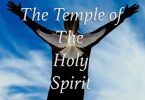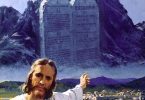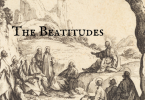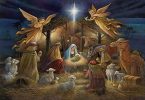21st Sunday of the Ordinary time
Readings: Is 22:15, 19-23; Ps. 137: 1-3, 6, 8; Rom. 11:33-36; Mt. 16:13-20
Once a doctor had an operation which had some complications then he usually had. There was a huge risk factor involved in the operation. Although he was an expert in the field, he was feeling tense in the operation theatre. The whole atmosphere in the theatre was tensed up. The anaesthetic, the nurses, the associate doctors were silent. The patient was aged and he sensed it. He requested the doctor before the anaesthesia to allow him to pray. He made a beautiful prayer. He prayed for the doctor and all those who were present in the theatre. He prayed for the gift of life. The prayer had beautiful effects on the doctor. The surgery was successful. The doctor revealed to the man that it was first time in his life he felt peace while operating on him. The patient’s prayer had lasting effects on the doctor because he chose God over all human strengths.
Today’s liturgy tells us that we are called to choose God over human capabilities. In the first reading, Prophet Isaiah made a bold and convincing appeal to King Hezekiah when Jerusalem was threatened by a powerful enemy: the Assyrians. Prophet Isaiah told King Hezekiah, “Do not fear, Yahweh would save Jerusalem”. Whereas Shebna, the chief administrator of the palace misguided King Hezekiah. Shebna had trusted in human resources than in God. He had tried to persuade Hezekiah to revolt against Assyria by sending for Egyptian support and amass large forces of chariots than serve God of Israel. God made the choice of Eliakim. He entrusted Eliakim with an office symbolized in the robe and sash. He would carry the keys of the house of David. God gave him absolute powers. No one was above him except the king. God chose Eliakim because he relied on God’s power more than human power. In the midst of confusion and danger, Eliakim’s choice to remain faithful to the Lord was much appreciated and liked.
The Gospel text which we read today is one of the key texts in the Gospel of Matthew. The incident was a central moment in the life of Jesus Christ and His disciples. It was a decisive moment where Jesus questions His apostles “who do you say that I am?” Jesus wanted to know the choice of his disciples after carefully teaching them for quite some time. It is interesting to know how Jesus chose the place to question his apostles. The place where they gathered at was called “Caesarea Philippi”.
It plays a very important role in this passage. It was situated about 25 miles northeast of the Sea of Galilee, from where the promised land begins. This city was under the domain of Emperor Caesar and it had been built by Philip the Tetrarch, the son of Herod the Great. Thus it was distinguished from the cities by calling it Caesarea Philippi. The Roman Procurator lived in this city. It was also a place where many religions met. There was a temple dedicated to the godhead of Emperor Caesar to recognize the splendour of the Roman Empire. It was a birthplace of Pan, the great Greek god of nature. There were 14 temples dedicated to the worship of the Syrian god Baal. And some believed it was a starting point of the river Jordan. Thus it had great importance in the lives of the Romans, the Greeks and the Jews.
Now when we look at the background of the place, one will surely say that Jesus must have deliberately chosen this place to invite his apostles to make the right choice. It is Peter, the representative of twelve disciples, who takes the initiative by the divine wisdom and proclaims that Jesus is the Messiah, the Christ, the Son of the living God, whereas the others saw Him as Elijah, Jeremiah, John the Baptist and one of the prophets. Peter recognized Jesus as the Messiah. Jesus rewarded him with the keys of the kingdom of heaven. We are reminded of the powers of Eliakim, the royal administrator of the palace mentioned in the first reading.
It is said, “God always give his best to those who leave the choice with him”. The patient in the operation theatre, Eliakim, the administrator of the palace, Peter, the first among the apostles chose God in their lives. God blessed them with manifold gifts. St. Paul was also another person, who chose Christ whereas his brothers and sisters refused to accept Jesus as the Messiah. He exhausted talking to the Romans about their refusal to accept him. At last, he breaks into praising God for his wisdom and knowledge. St. Paul was astounded at the wisdom, knowledge of God. He says God is self-sufficient. He is all-powerful. He gives him glory.
If we choose God over all things, we will be like St. Paul who only marvelled at the wisdom and knowledge of God. He had only praises in his mouth. May this Holy Eucharist help us to choose God over all things in our lives.






